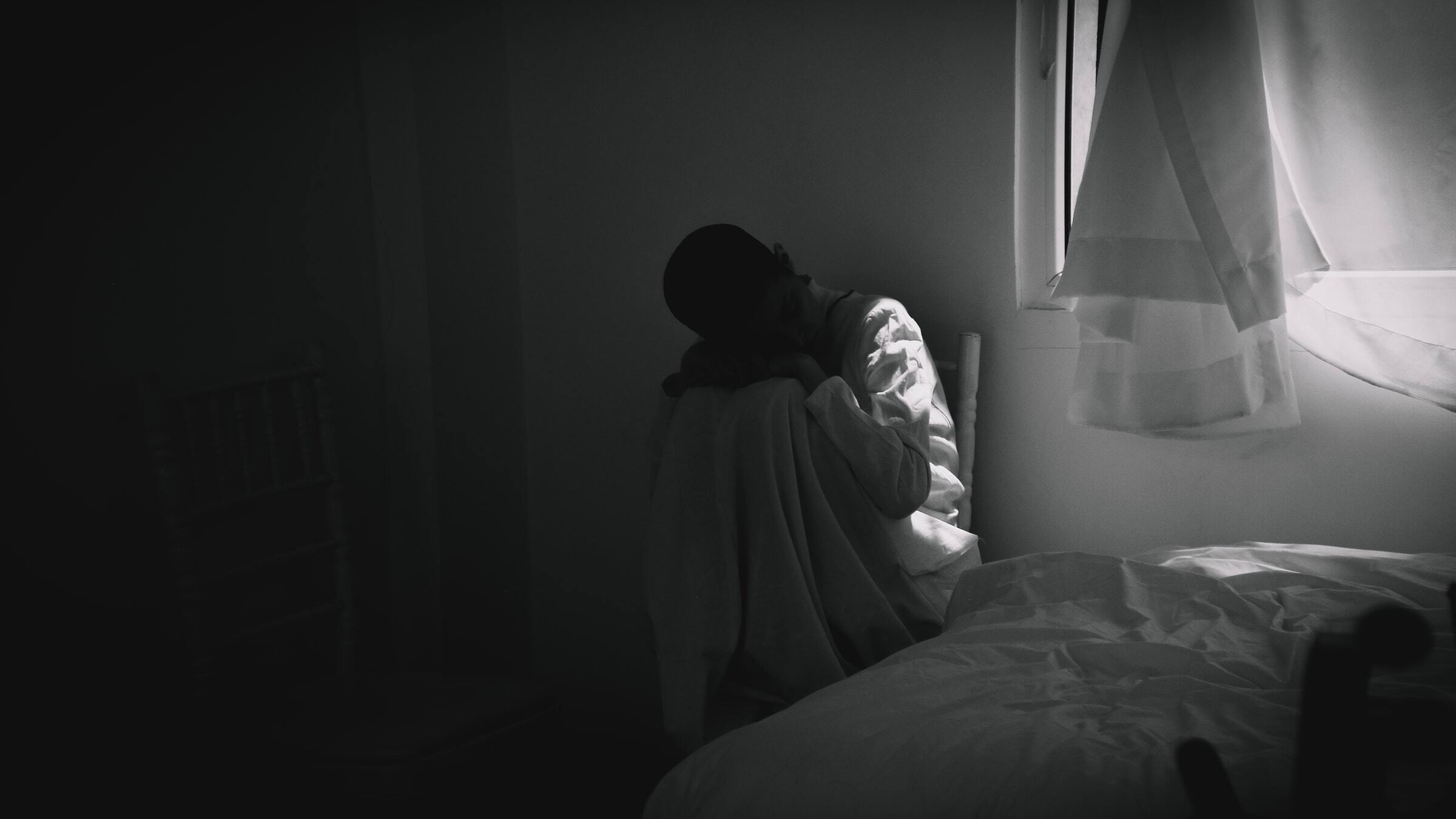Why poor sleep can lead to depression
Dr. Christine Blume
|Mar 21, 2023
The background and tips for preventing mood disorders.
Everyone has experienced it at some point - a sleepless night and the mood is in the basement the next morning. We are grumpy, irritable and every effort we make wears on our nerves. Occasionally we get through such nights well, but if they become more frequent, they can favour the development of depression or anxiety disorders. Persistently poor sleep puts the body in a state of stress, which throws a number of processes out of balance.
Hormones out of balance
The hormonal balance is particularly affected. An increased release of the stress hormone cortisol leads to a permanent overactivation of the hypothalamic-pituitary-adrenal axis. Numerous studies have shown that this altered regulation is significantly linked to the development of depression [1]. The ‘happiness hormone’ serotonin, which is also involved in the regulation of the sleep-wake rhythm, also plays an important role in this context. An imbalance in serotonin metabolism can also contribute to depressive moods [2]. In addition, restricted communication between certain areas of the brain can impair the reaction to emotional stimuli and thus trigger excessive demands and overreactions.
Of course, other hormones, neurotransmitters and psychological processes are also involved in the development of anxiety disorders and depression, and poor sleep does not always precede an illness. The reverse pathway is also possible: an existing depression or anxiety disorder can cause or trigger a sleep problem. In fact, around 90 per cent of people who suffer from depression are also affected by insomnia [3].

Social life suffers
Poor sleep also affects social interactions. People who sleep poorly tend to avoid others, isolate themselves and feel lonely. This again favours a depressed mood because positive experiences and social support from others are missing. Conversely, people who have not slept well are perceived by outsiders as less socially appealing, which means they tend to avoid social interactions. This further increases the social isolation of poor sleepers [4]. Social withdrawal and loneliness are significant risk factors when it comes to the development of depression. It is therefore important to escape this vicious circle.
Get moving - and get rid of your mobile phone!
Firstly, it makes sense not to take a nap during the day. There is evidence that such naps can have a detrimental effect on the mood of people suffering from depression. Spending a lot of time in front of the TV, computer or mobile phone also appears to have a negative effect on mood [5]. It is therefore better to limit their use. What has a positive effect on mood is - unsurprisingly - exercise. Research shows that regular physical activity has a positive effect, lifts the mood, reduces anxiety and boosts well-being by releasing the body's own endorphins. It also improves the quality of sleep [6].
Sleep² tips:
- Spend a lot of time in the fresh air and daylight and try to be physically active during the day. A walk sometimes works wonders!
- Avoid naps and be aware of your internet and TV consumption
- Make sure, even if it is sometimes difficult, that you spend enough time socialising and don't ‘shut yourself in’ despite being tired.
Hypothalamic-pituitary-adrenal axis:
Complex regulatory circuit between the three endocrine glands, hypothalamus, pituitary gland and adrenal cortex, which regulates numerous bodily functions and reactions (stress response, digestion, immune system).
Endorphins:
The body's own substances that have a pain-relieving effect as well as increasing the feeling of happiness and can lead to euphoria. They are colloquially referred to as happiness hormones.
Sources:
1. Keller, J., Gomez, R., Williams, G., Lembke, A., Lazzeroni, L., Murphy, G. M., Jr, & Schatzberg, A. F. (2017). HPA axis in major depression: cortisol, clinical symptomatology and genetic variation predict cognition. Molecular psychiatry, 22(4), 527–536.
2. Albert, P. R., Benkelfat, C., & Descarries, L. (2012). The neurobiology of depression--revisiting the serotonin hypothesis. I. Cellular and molecular mechanisms. Philosophical transactions of the Royal Society of London. Series B, Biological sciences, 367(1601), 2378–2381.
3. Tsuno, N., Besset, A., & Ritchie, K. (2005). Sleep and depression. Journal of Clinical Psychiatry, 66(10), 1254-1269.
4. Simon E.B. & Walker M. (2018). Sleep loss causes social withdrawal and loneliness. Nature Communications, 9: 3146
5. Choi K.W., et al. (2020). An exposure-wide and mendelian randomized approach to identifying modifiable factors for the prevention of depression. Am J Psychiatry, 177(10), 944-954.
6. Singh N.A., Clements, K.M., & Fiatarone M.A. (1997). A Randomized Controlled Trial of the effect of exercise on sleep. Sleep, 20(2), 95-101.